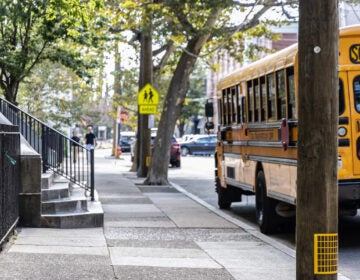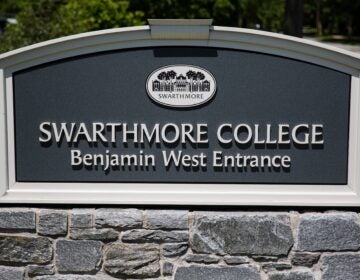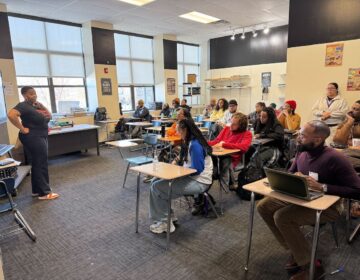With Philly’s opt-out movement growing, Council holds hearing on standardized tests
-
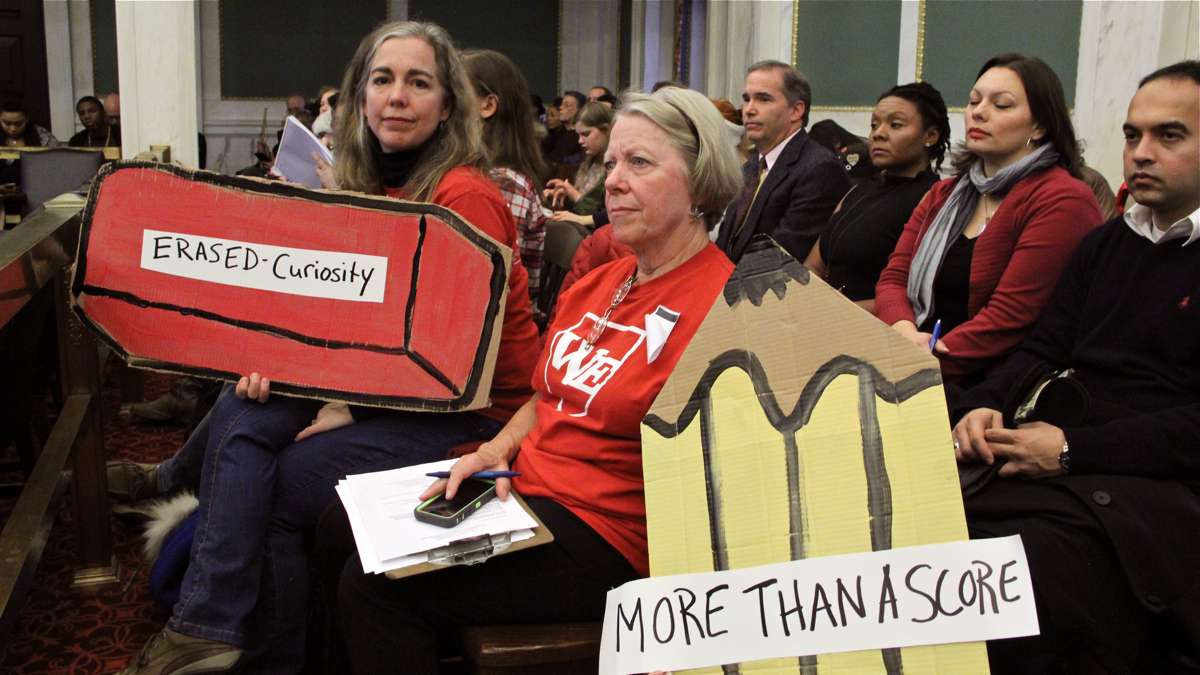
Education activists Allison McDowell (left) and Diane Payne attend hearings at City Council to express their objections to standardized testing. (Emma Lee/WHYY)
-
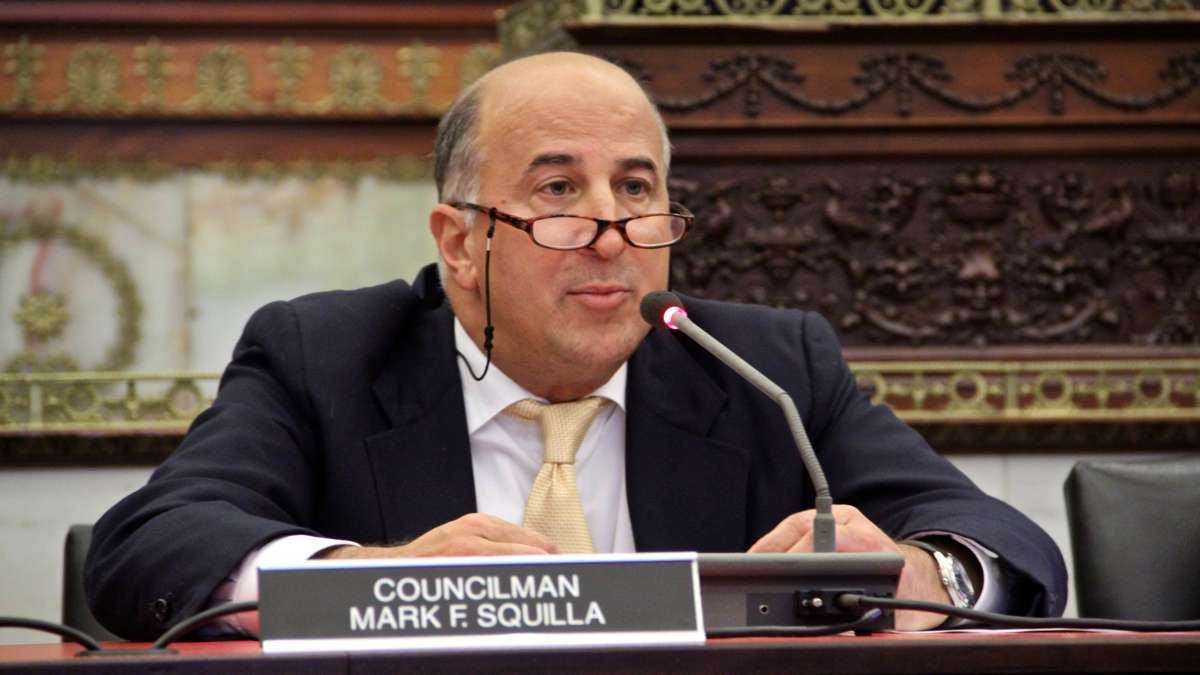
Councilman Mark Squilla listens to testimony about the costs and effects of standardized testing in Philadelphia schools. (Emma Lee/WHYY)
-
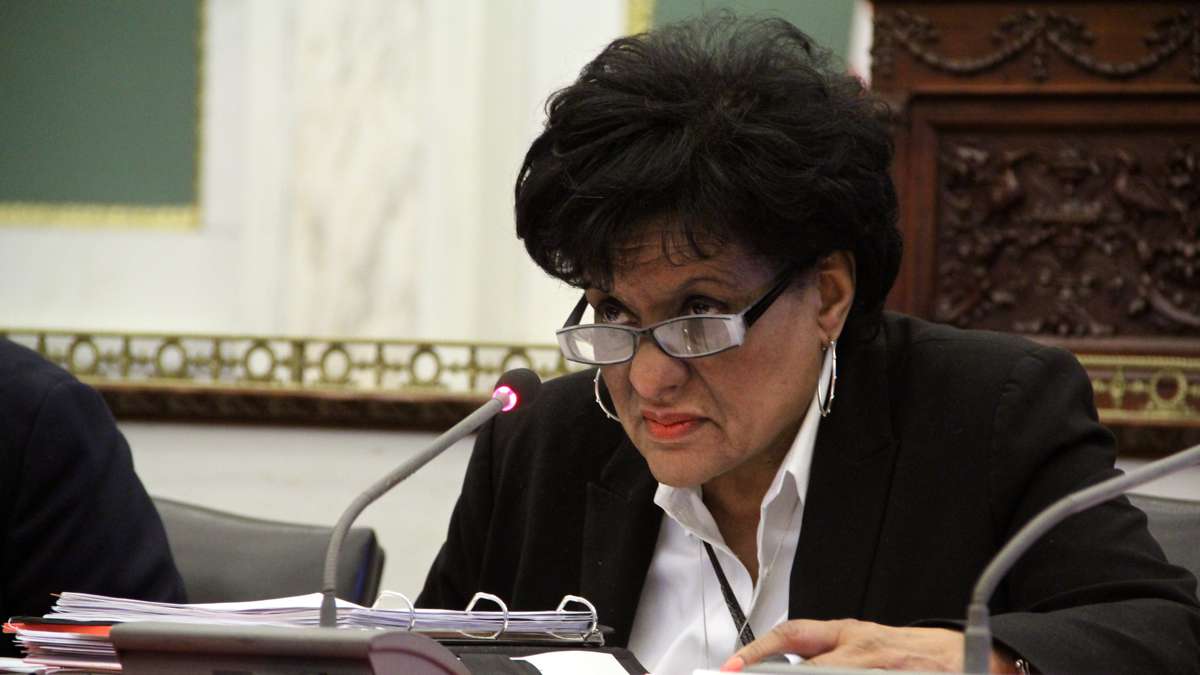
Jannie Blackwell, chair of Education Committee of Philadelphia City Council, listens to testimony on the value of stadardized testing. (Emma Lee/WHYY)
-
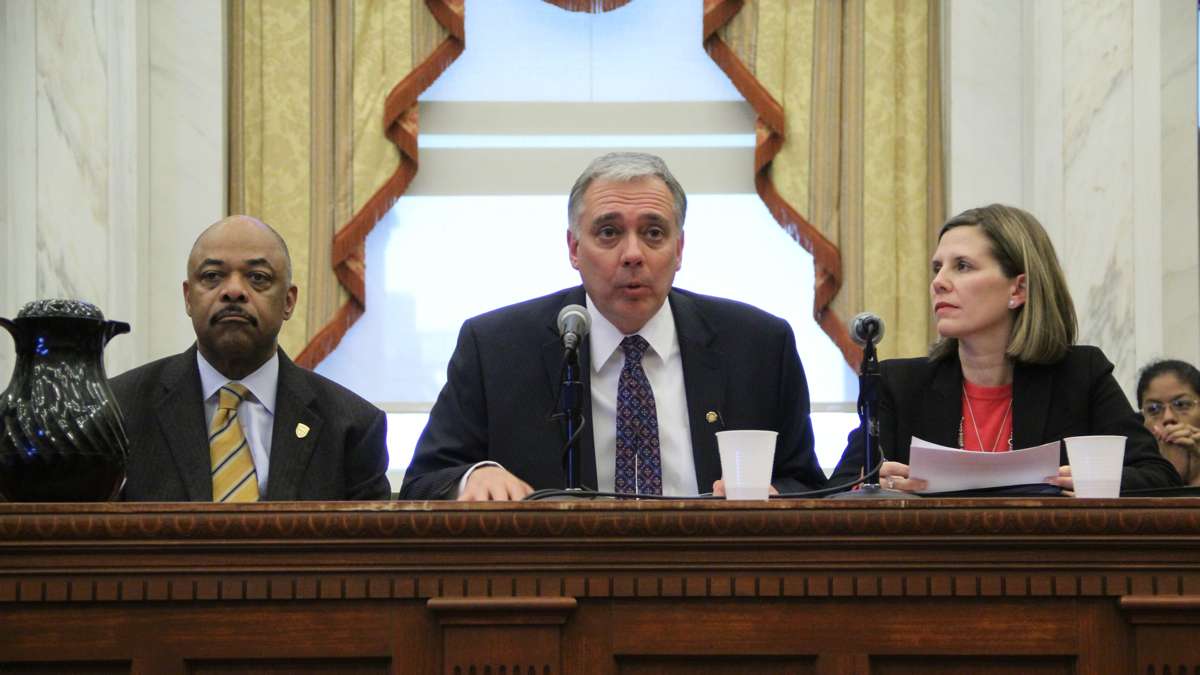
State Rep. Mike Tobash testifies before the Philadelphia City Council Committee on Education during an inquiry into the costs and results of standardized testing. (Emma Lee/WHYY)
-
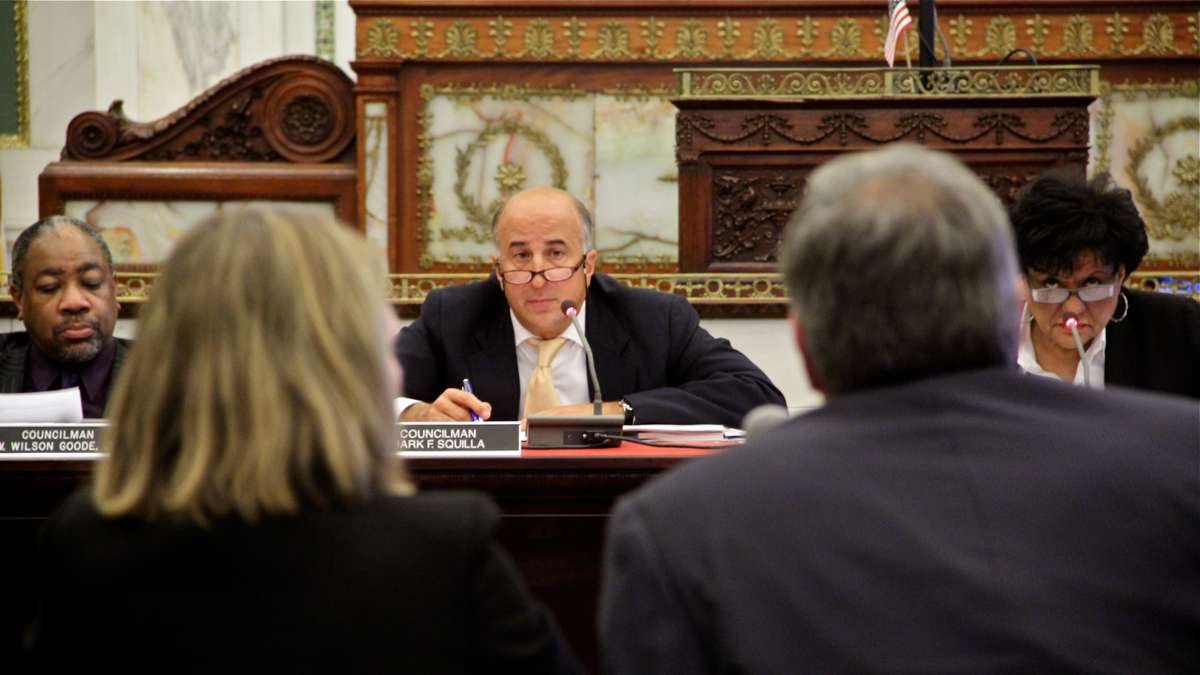
City Councilman Mark Squilla listens to testimony before the Committee on Education. (Emma Lee/WHYY)
In a sign that the “opt-out” of testing movement is gaining traction, the Philadelphia City Council Education Committee Wednesday heard parents, teachers, and education advocates decry the state and federal emphasis on high-stakes standardized testing.
“Standardized tests negatively impact students living in poverty, English language learners, and children with special needs, of which Philadelphia has many,” said Alison McDowell, a district parent who has led Philadelphia’s opt-out movement and helped organized the hearing with Councilman Mark Squilla as part of the Alliance for Philadelphia Public Schools.
Of particular concern to the crowd gathered in Council chambers is the requirement that, beginning with the Class of 2017, Pennsylvania’s students must pass Keystone exams in literature, algebra 1 and biology to graduate from high school.
This could have a profound effect on families, not just in Philadelphia, but statewide; recent data shows that many students are not scoring at a proficient level on the exams, especially biology.
“What is the value of this test? Is this test an adequate tool? We paid all this money for it, do we really think half the students in the state who are passing their courses should not get to graduate?” said McDowell.
“It’s a colossal waste of classroom time,” said Robin Roberts, a district parent who opted out of testing last year, instead using the days to take her children on culturally enriching trips to the city’s museums.
If students can’t pass the Keystone exam after two attempts, they can elect to complete a project assignment to be overseen by their teachers and then graded by other teachers from outside districts.
Families can choose to exempt their children from state testing on religious or philosophical grounds. If 5 percent of students within a district opt out of the tests, a district’s test score results would be nullified.
State Rep. Mike Tobash, R-Dauphin, testified that the Keystone graduation requirement should be decided at the local level.
“We believe that school districts should have more autonomy,” said Tobash. “They should be given the option.” He added that the tests themselves (not the graduation requirement) are federally mandated through the No Child Left Behind law.
Tobash confirmed that it cost the state $65 million to $80 million to develop and implement the three existing Keystone exams tests. The state is planning to develop another two in civics and writing.
Donna Cooper, executive director of Public Citizens for Children and Youth, submitted testimony saying the opt-out movement has “inherent wisdom” based on the idea that schools often base instruction on “test prep rather than holistic instruction.”
But Cooper also added that the Keystone exam graduation requirement makes sense to ensure, “that, for instance, students from Philadelphia enter college as prepared as students from Lower Merion.”
The real problem with testing, she said, is that “the disparity of resources among school districts in this state makes it unlikely that the Philadelphia School District has the wherewithal to prepare its students to pass these tests.”
Cooper’s point was repeated often at the packed hearing.
“It is the issue of funding that indicates the measure of academic success,” said state Rep. James Roebuck, a Philadelphia Democrat who serves as minority chair of the house Education Committee.
In addition to high school Keystone exams, Pennsylvania students take PSSA exams every year in grades three through eight.
Philadelphia Federation of Teachers President Jerry Jordan said the emphasis on standardized exams often pushes teachers to “teach to the test.”
The state’s academic school accountability system, the School Performance Profile, is based mainly on student test scores. Beginning this year, SPP results will affect how schools rate individual teachers.
“Teachers spend up to one-third of their time doing test-prep because they fear getting a bad evaluation,” Jordan said.
Jordan received a round of applause for saying that the only two beneficiaries of high-stakes testing are the corporate test-makers and the state prison system.
The committee hearing was attended by Councilmembers Mark Squilla, Jannie Blackwell, Wilson Goode Jr., David Oh, Curtis Jones, Blondell Reynolds Brown, and Maria Quinones-Sanchez.
Standardized tests give parents and lawmakers an idea of just how disparate the educational outcomes are for students in different schools and districts across the state – a necessary tool for understanding how to provide extra supports, Oh argued.
In addition to state exams, the School District of Philadelphia administers three benchmark exams of its own.
Chris Shafer, the district’s deputy chief of curriculum instruction and assessment, called the benchmark exams “formative assessments” that “allow us to measure performance over time.”
Questioning Shafer, Squilla was surprised to learn that all students – no matter language fluency or special-education disability – are given the same district and state assessments.
“And they all take the same test?” said Squilla. “Wow.”
Shafer later agreed that there’s a “there’s a lot of inequity in the testing,” saying that, “the Keystone exam does serve as a barrier exam, particularly for marginalized students.”
Tiffany Bhavnani – who teaches at Furness High School, where English-language learners make up 57 percent of the student body – noted that the state’s best performing schools serve very few non-native speakers.
“My students remain in school and continue their education despite the many academic, cultural and economic challenges they face on a daily basis,” she said. “And what do we do with them? We force them to take test after test that they are not ready or able to succeed at.”
For McDowell, the testing culture creates a “narrative of failure,” that becomes a “self-fulfilling prophecy,” which enables “our schools not to be invested in properly, [and then] turned over to other management entities out of the public realm.”
“And so to stop that narrative, we have to stop the tests,” she said. “And the way to stop the tests is to not take them.”
WHYY is your source for fact-based, in-depth journalism and information. As a nonprofit organization, we rely on financial support from readers like you. Please give today.



